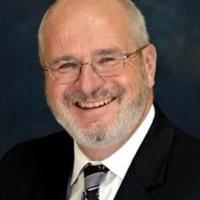What is the inexplicable allure of Indiana’s ‘job-averse’ politicians?
It seems that in the Hoosier State, the motto might as well be, “Why accept a job when you can run for one?” A puzzling trend has emerged where voters consistently elect politicians who appear less than enthusiastic about their roles—almost as if they see gubernatorial duties as just a stepping stone in their personal quest for fame (or infamy).
Perhaps this bizarre phenomenon kicked off with none other than Mike Pence—a man whose ambition for national prominence overshadowed his obligation to the state. After all, who wouldn’t want to pursue a presidential dream while casually waving at the people who thought they’d elected a competent governor? Pence’s time in office was marked by a thrilling talent for distraction, as he sought conversations about national affairs while the state’s actual issues languished like forgotten leftovers in a fridge.
Then there’s Todd Rokita, who gives off a light “I’d rather be anywhere else” vibe. Upon being elected Indiana Attorney General, he initially held onto a lucrative side gig in health care—because who doesn’t love a bit of confusion when you’ve just landed a major political position? Eventually, he cast aside the health venture, but not without transforming the attorney general role into a part-time gig that’s closer to a hobby than a commitment, all while eyeing the next great opportunity to land a cushy spot on Fox News or Breitbart.
Not to be outdone, Mike Braun twirled into the governor’s office only to reveal—shockingly—that he preferred daydreaming about a 2028 presidential run over actually doing his job. If his enthusiasm for governance were a food item, it would probably be soggy toast left out overnight. He has now publicly denied any boredom with his role, but his lack of interest radiates like an old, flickering streetlight.
And let’s not forget Lt. Gov. Micah Beckwith. This gentleman juggles his duties in the Statehouse along with a pastoral role at Life Church in Noblesville—which is not a scene right out of a sitcom where the punchline is that he’s “too busy” to do both right. His LinkedIn proudly lists both gigs as full-time, perhaps indicating that he is not quite sure how to balance his divine calling with earthly responsibilities—whatever that might mean in his unique universe.
In a moment of utter brilliance (or audacity), Beckwith asserted that his dual roles share a common mission. Picture it—him leading his flock one moment and then pivoting to close a political deal the next. With a strategy like that, it’s no wonder he believes that shepherding the public is much like shepherding a congregation. In his worldview, government operates on divine authority, ignoring the inconvenient fact that governance is supposed to be for everyone—even those who do not share his particular view of God.
Now, let’s be real: In a state populated by diverse faiths and beliefs—including Jews, Muslims, Buddhists, and a healthy dose of atheists—Beckwith’s theological approach to governance can be a tad problematic. Expecting that a politician set on preaching from the taxpayer-funded pulpit will truly represent the interests of all citizens seems like asking a cat to babysit a litter of mice. And yet, there’s no law preventing someone from transforming their state office into a part-time venture, so long as they’re game for the chaos that follows.
In conclusion, Indiana’s warm embrace of politicians who prefer weekend hobbies to actual public service could use a rethink. Voters might consider electing officials who actually want to govern rather than those who just view the office as the ultimate networking opportunity. After all, the people of Indiana deserve leaders who show up, gear up, and give a hoot about the state—not just the spotlight!

